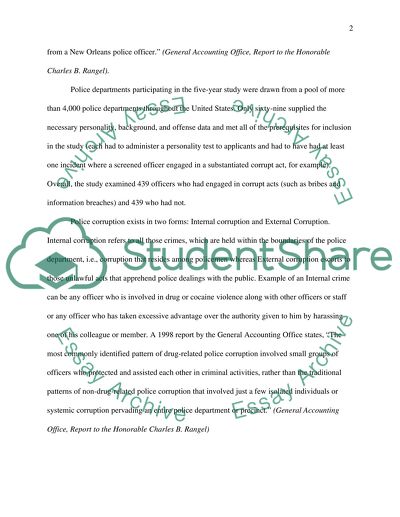Cite this document
(“Police Corruption In The United States Essay Example | Topics and Well Written Essays - 2500 words”, n.d.)
Retrieved from https://studentshare.org/law/1523418-police-corruption-in-the-united-states
Retrieved from https://studentshare.org/law/1523418-police-corruption-in-the-united-states
(Police Corruption In The United States Essay Example | Topics and Well Written Essays - 2500 Words)
https://studentshare.org/law/1523418-police-corruption-in-the-united-states.
https://studentshare.org/law/1523418-police-corruption-in-the-united-states.
“Police Corruption In The United States Essay Example | Topics and Well Written Essays - 2500 Words”, n.d. https://studentshare.org/law/1523418-police-corruption-in-the-united-states.


